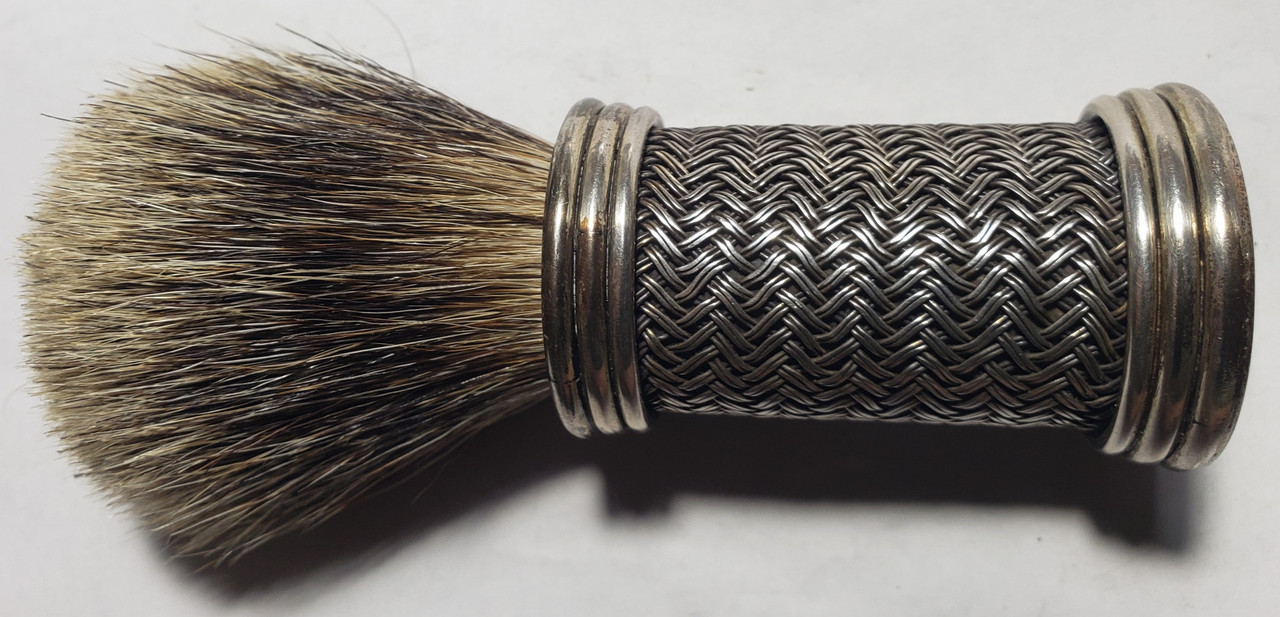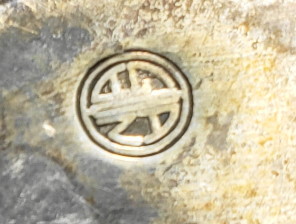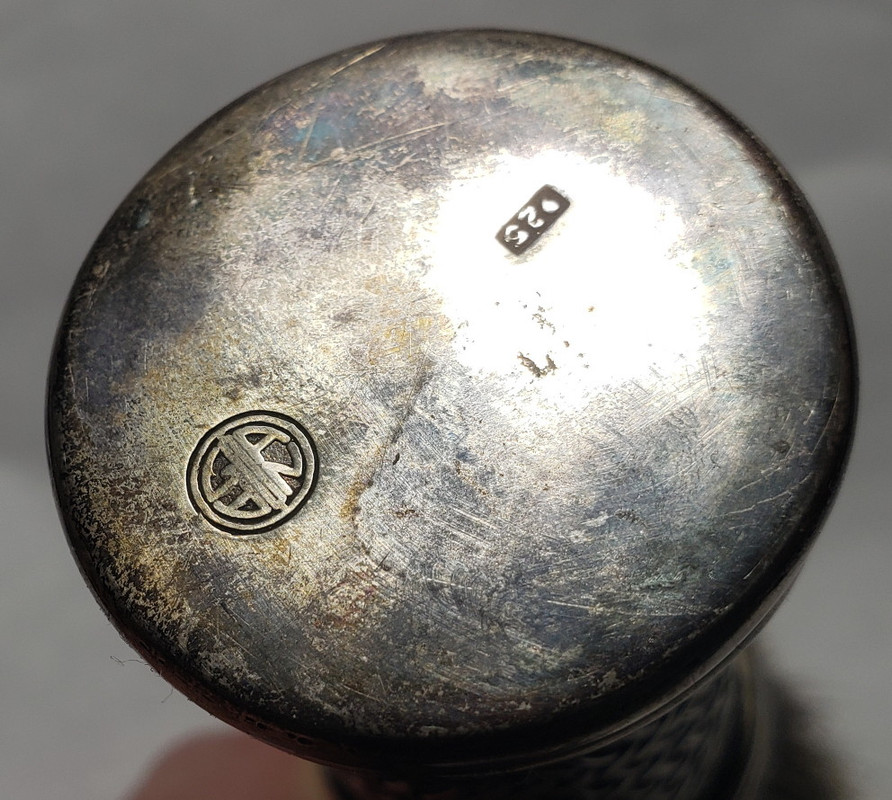Page 1 of 1
Sterling Shaving Brush
Posted: Wed Aug 07, 2024 3:40 am
by richst
Hi All,
Attached are pix of a great shaving brush, but I can find no info on maker. Anyone recognize the mark? Thanks, Rich



Re: Sterling Shaving Brush
Posted: Wed Aug 07, 2024 5:42 am
by Aguest
::::: Interesting piece, whenever I see that style of [925] immediately I check Australian silversmiths (many Australian silversmiths are associated with this type of "incuse 925" style of hallmark, but there's something different about the shapes of the 925 numbers that makes me reconsider this theory.....
::::: There's something Modernist about the piece, so I'm definitely thinking 1950s, I've even been looking at the Museum Of Northern Arizona because in 1949 a group of graduate students were supposed to form a silversmith guild, so I was wondering if the letters are for "Northern Arizona Guild Association" and this could have something to do with Modernist Hopi/Navajo silversmithing techniques, (In 1949 the Hopi Silvercraft Guild was formed so I don't know if that was the guild the graduate students were supposed to form?). The circular pattern of the hallmark reminds me of some Native American hallmarks, but again that might be wandering away from the truthful origin of the piece......:::::::::
::::::::::::::::::::::::::::::::: I'm no closer to a even a probable guess, unfortunately. ::::::::::::::::::::::::::::::::::::::::
Re: Sterling Shaving Brush
Posted: Wed Aug 07, 2024 8:34 am
by Aguest
::::: (the Hopi possibility is more based on the way the hallmark was made rather than the "basket weaving" motif on the silver handle. There is a technique of silver overlay that The Hopi use in silversmithing, and although it would be helpful to view an enlarged picture of the hallmark with crisp details to be sure, it is possible that the hallmark has been made using the Hopi Silver Overlay Technique. Here's some info about the Hopi Silver Overlay technique from the AZ State Museum:
"Hopi Overlay:
In the late 1930s, as part of a major effort to promote Hopi handicrafts, Harold and Mary- Russell Colton, founders of the Museum of Northern Arizona (MNA), in Flagstaff, encouraged Hopi artisans to develop a unique style. They embraced the silver overlay technique, first suggested by MNA staff member Virgil Hubert, and incorporated traditional Hopi pottery designs and other cultural symbols into their jewelry. Overlay work involves soldering a silver sheet, with patterns cut into it, to a backing that is then textured and oxidized to provide contrast.
The advent of World War II in December 1941 interrupted silver jewelry production. After the war ended, and using funding from the G.I. Bill, Hopi artist Fred Kabotie and silversmith Paul Saufkie established a craft cooperative, the Hopi Arts and Crafts Guild, to teach silversmithing to veterans. Kabotie provided the designs, many based on ancient Mimbres pottery motifs (c. 1000–1150 CE). Saufkie contributed the technical instruction. They opened a retail shop in 1961."
:::::::::